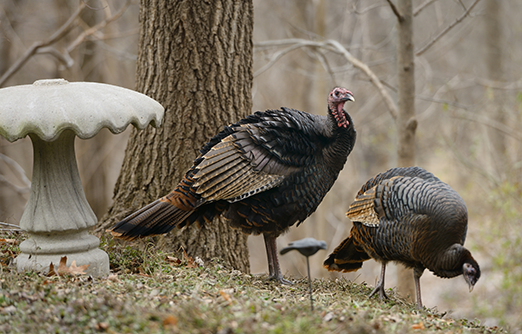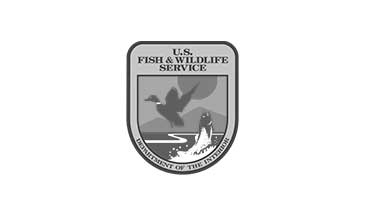How to Get Rid of Wild Turkeys

A few steps can be taken to avoid turkey encounters. It’s best not to feed wild turkeys that venture onto lawns as this only encourages them to remain or become aggressive. Keeping your yard clean is important, birdfeeder seed litter will only attract more turkeys. If your gardens and crop fields are being damaged, netting or fences can help.
If turkeys are becoming a nuisance on your property, call our trained specialists at Varment Guard to handle the problem
CONTROL METHODS:
Harassment
Turkeys can be deterred from using specific areas by using a variety of harassment techniques. The use of holographic bird deterrents, either solar powered or wind driven, can be used to broadcast an array of reflected light across the area where you don't want the turkeys present. Varment Guard uses this erratic display of light in combination with noise and water deterrents to keep unwanted turkeys from coming back.
Protection Status
Wild Turkeys are protected under State Gamebird Laws and eggs, young, and adults cannot be removed without a depredation permit issued by the state DNR.
BIOLOGY
- Adult body length: Stand 3’-4’ tall
- Adult body weight: up to 25 pounds
- Appearance: Slim build, long featherless head. Body appears black/drab brown in color
- Egg incubation period: 28 days
- Broods per year: 1
- Brood size: 8-16 eggs per clutch
- Birthing Period: Late March - May
- Age at which young leave nest: Within hours of hatching
- Activity seasonality: Feburary through September
- Primary diet: Small flying insects (e.g., bees, flies, flying ants, moths, beetles), seeds, grains, forbs and grasses.






